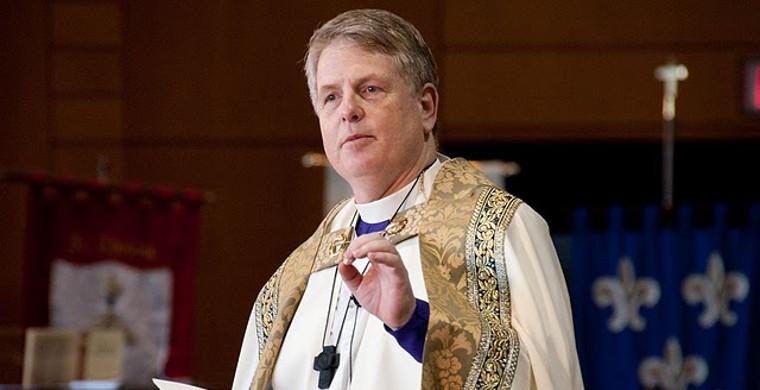The Past is Never the Past
By Scott Benhase
Sept. 22, 2017
If the dead could speak, what would they say to us? That's a conceit of more than a few books and films over the years. Charles Dickens used it in A Christmas Carol. Jesus used it in the Parable of the Rich Man & Lazarus where the rich man begs to return from the dead so he can warn his still-alive brothers to change their greedy ways.
I spent time earlier this week at Bishop Stephen Elliott's grave in Savannah. He died suddenly on December 21, 1866, after having just returned from an episcopal visitation. He served 25 years as the 1st Bishop of Georgia from 1841-1866. He's buried in Laurel Grove Cemetery in Savannah, which isn't far from my home. He was 60 years old when he died. The same age I am now. To get to Laurel Grove cemetery from my home, one must ride past St. Matthew's Episcopal Church, a parish with a long, strong history in the Diocese of Georgia. St. Matthew's is also an historically African-American congregation, an ironic gateway to anyone visiting Bishop Elliott's grave.
In 1867, the year after Bishop Elliott's death, Thomas M. Hanckel wrote a "memoir" of Bishop Elliott in a book of the Bishop's sermons. Hanckel's work is more hagiography than memoir. As I read it again this week, I noticed how carefully Hanckel avoided any engagement with the issues of race and slavery. He preferred to wax on about how Bishop Elliott, like many of his contemporaries, was caught up in the "great political questions of State Sovereignty and Free Trade" that "shook the country." Hanckel further describes him as "a States' Rights man in the highest and best meaning of those words. He believed in the simple story of the Sovereignty of the States as he read it in every child's history." Well, maybe not in every child's history. Here we see, just two years after the Civil War's end, Hanckel's effort to change the narrative for the war's cause, which he'd have us believe, wasn't fought to end the vile and morally corrupt practice of one human being "owning" another human being. No, he argues, the war was about political differences concerning governmental jurisdictions and rights.
Bishop Elliott was a devoted bishop who sacrificed both his health and his family's fortune as he sought to build up the Church of Jesus Christ in Georgia. His sermons are eloquent exhortations on God's grace poured out for us sinners on the cross of Jesus. He was also a man who owned many slaves and saw it as his God-given right to do so. We're still a people trying to sort through our "original sin" of racism in this country. The latest chapter is about monuments to generals who fought on the immoral side of a long-ago war. It's easy for us to judge them now. Our judgment about them might really be a form of self-justification, thinking that if we simply take all those statues down, then it'll cure what ails us as a people. I wish it were that easy. The statues should come down, but let's not fool ourselves into believing that'll even remotely heal our sickness.
William Faulkner famously wrote: "The past is never dead. It's not even past." Maybe we could also say that about the dead? They're never past as well. Even though we may not want to admit it, they live on as a reminder of just how much we're like them. We could all benefit from hearing one of Bishop Elliott's sermons on God's grace for sinners.
The Rt. Rev. Scott Anson Benhase
Bishop of Georgia














